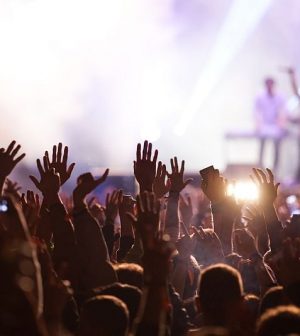- Could Your Grocery Store Meat Be Causing Recurring UTIs?
- Are You Making This Expensive Thermostat Error This Winter?
- Recognizing the Signs of Hypothyroidism
- 10 Strategies to Overcome Insomnia
- Could Artificial Sweeteners Be Aging the Brain Faster?
- Techniques for Soothing Your Nervous System
- Does the Water in Your House Smell Funny? Here’s Why
- Can a Daily Dose of Apple Cider Vinegar Actually Aid Weight Loss?
- 6 Health Beverages That Can Actually Spike Your Blood Sugar
- Treatment Options for Social Anxiety Disorder
Want to Feel Less Lonely? Spend Money on Experiences, not Things

Materialism could be fueling America’s epidemic of loneliness and isolation, a new study claims.
People who spend their money on experiences tend to have stronger feelings of social connection with others than those who purchase belongings, a series of psychological experiments has revealed.
For example, people tend to feel more connection and kinship with people who have shared an experience — a concert or a sports event — than those who’ve purchased the same type of material good, like shoes.
“You feel a significantly stronger sense of connectedness when you find out that you just saw the same band in concert than when you learn you have the same shoes as someone else,” said researcher Amit Kumar, an assistant professor of marketing and psychology with the University of Texas at Austin.
To test how spending patterns affect a person’s sense of belonging, Kumar and colleagues conducted a series of seven experiments involving more than 1,400 participants.
Results showed that experiences are more tied to a person’s identity than material possessions.
The findings were published May 21 in the Journal of Behavioral Decision Making.
“All of our buying habits are, to some extent, part of who we are, and they can connect us to other people,” Kumar said in a university news release. “But that’s much more likely to be true of experiences we buy than material items we buy.”
Experiences also are less tied to envy, they found.
Two separate people will have a greater sense of connection regarding a shared experience, even if one of them was able to buy a superior version of the experience, results show.
For example, a person sitting in the nosebleed section will still feel a stronger connection to a person in a private box regarding the baseball game they both watched than if they noticed they were wearing the same kind of shoes, Kumar said.
Shared events increase feelings of connectedness not just between friends attending them together, but between people in general, results show.
Companies marketing goods for sale should consider highlighting the experiences a person might have with those products, Kumar said.
“That would likely enhance consumers’ feelings of social connection and drive longer-term satisfaction,” he said. “That can be important for things like customer retention and brand loyalty.”
More information
The U.S. Surgeon General has more about loneliness and isolation.
SOURCE: University of Texas at Austin, news release, May 21, 2024
Source: HealthDay
Copyright © 2026 HealthDay. All rights reserved.










